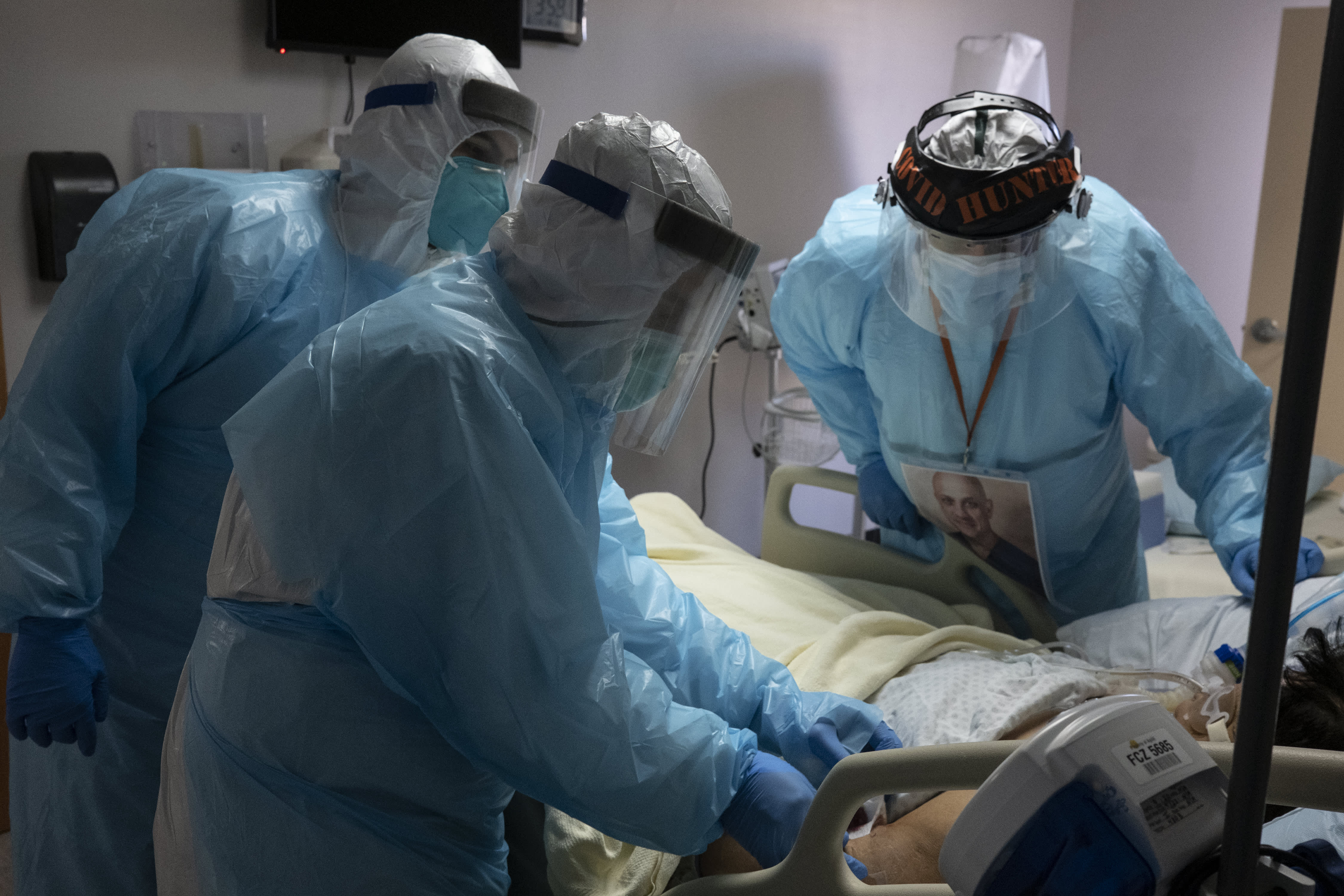Medical staff examine a patient in the Covid-19 intensive care unit at United Memorial Medical Center in Houston on Nov. 16, 2020.
Go Nakamura | Getty Images
LONDON — Swiss biotech firm Relief Therapeutics has seen its share price climb by 38,000% so far this year, as it develops a drug focused on respiratory failure arising from severe Covid-19.
Last week, the company, along with U.S. partner NeuroRx, met the 165 patient enrollment target agreed with the U.S. Food and Drug Administration in their ongoing phase 2b/3 trial of RLF-100, which is a patented version of aviptadil.
Aviptadil is a synthetic formulation of a naturally occurring peptide called Vasoactive Intestinal Polypeptide (VIP), which is primarily concentrated in the lungs and works to reset the immune system response along with serving as a vasodilator and boosting the production of surfactant in the lungs, which enables blood oxygen transfer.
RLF-100 has been around since 2000, when it was developed to treat acute respiratory distress and other lung conditions and subsequently acquired by Biogen. Earlier this year, Relief scientists discovered that it could protect the cell that is attacked by the Covid-19 virus.
Speaking to CNBC via telephone from New York, Relief Therapeutics Chairman Ram Selvaraju said the ongoing trial is expected to provide topline data in the first half of January, and attributed the meteoric rise in the company’s share price in part to its evidence of efficacy in “otherwise untreatable patients.”
“Where other people have focused primarily on mildly infected or moderately infected people, we have fastidiously tried to see whether our drug can bring benefits to the critically ill and the end-stage folks,” he explained.
Early stage results from expanded access use of RLF-100 in patients suffering with critical Covid-19 and severe comorbidities showed 72% of those admitted into the ICU surviving.
Relief Therapeutics had a market cap of less than 100 million Swiss francs ($113 million) at the end of July, and on August 10 following promising results from the first 21 patients treated with RLF-100 under FDA Expanded Access Protocol authorization, it had surpassed 1.6 billion Swiss. It has since leveled off to just under 1 billion Swiss francs.
The 38,000% increase figure largely represents the small scale of the initial share price, which sat at just under 0.40 Swiss francs per share as of Friday afternoon. In contrast, shares of multinational Roche are worth 306 Swiss francs.
Other therapeutics being tested on patients more moderate symptoms have been purchased by government agencies seeking to combat the pandemic, with the U.S. government’s Operation Warp Speed placing orders for Gilead‘s remdesivir and Eli Lilly‘s bamlanivimab.
Selvaraju revealed that Relief Therapeutics and NeuroRx had been in contact with Operation Warp Speed and said if the drug successfully proves its efficacy in seriously ill patients following phase three randomized testing, the company expects to receive stockpiling orders on a similar scale to the likes of Gilead and Eli Lilly. A spokesperson for the U.S. Department of Health and Human Services was not immediately available for comment when contacted by CNBC.
Covid the ‘tip of the iceberg’
In June, the FDA granted fast-track designation to RLF-100, and it has also received orphan drug designation for the treatment of acute respiratory distress syndrome (ARDS).
As the drug is not an antiviral designed specifically to combat the coronavirus, Relief Therapeutics is hoping that the current pandemic is “an opportunity for this drug to shine” if it is proven definitively to have therapeutic clinical utility in addressing respiratory complications arising from Covid-19.
“Covid-19 is really the tip of the iceberg, the head of the spear. If we prove that this drug works in Covid-19 related respiratory distress, then we anticipate that we would be able to leverage those results into testing the drug further in other forms of acute respiratory distress syndrome that has nothing to do with Covid-19,” Selvaraju said, adding that this puts Relief Therapeutics in a “pretty unique position.”
“While a lot of other experimental therapeutics are going to either live or die based on how the pandemic evolves, we feel on the contrary that once we have established this drug’s therapeutic utility in the context of Covid-19, hopefully, our long term vision is to have this drug become a sort of workhorse drug for emergency rooms and Intensive Care Units and hospitals and hospital systems everywhere.”
